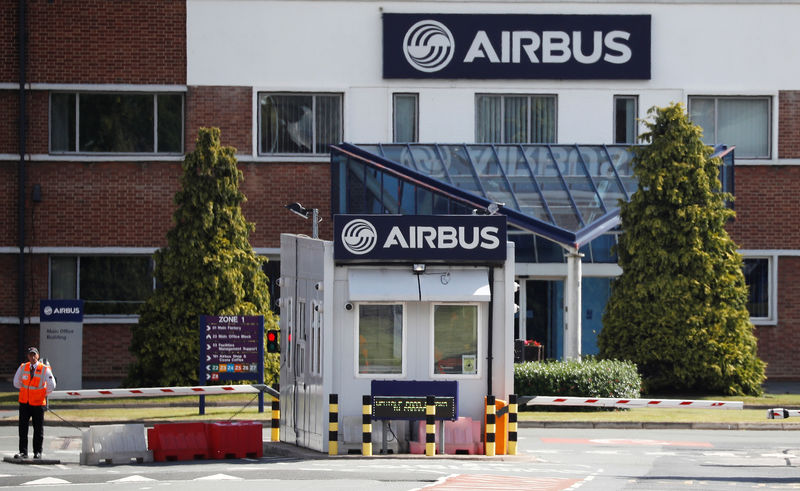Procore signs multi-year strategic collaboration agreement with AWS
Investing.com -- Jefferies has downgraded Airbus (EPA:AIR) to a ’hold’ rating, citing concerns over production ramp-up challenges and a lack of short-term catalysts to drive upside for the stock.
The brokerage also cut its price target for the commercial aircraft manufacturer to €180 from a previous €190, reflecting expectations of a slower-than-anticipated improvement in earnings before interest and taxes within its commercial aircraft segment.
Despite a strong performance in the fourth quarter, Airbus faces headwinds that could weigh on investor sentiment in the coming months.
Analysts at Jefferies pointed to the integration of aerostructures businesses as a key challenge, which is expected to contribute to additional financial pressures.
Moreover, the absence of a share buyback announcement has removed a potential support mechanism for the stock, further prompting the downgrade.
While Jefferies acknowledged Airbus’ underlying financial health, the brokerage believes near-term risks outweigh the potential for gains.
A major factor in this reassessment is the outlook for the A320 family, which, although maintaining long-term production targets, is expected to face near-term delays and constraints.
The A350 program is also seeing flat delivery expectations for 2025, adding to concerns over the company’s growth trajectory in the short term.
The revised price target reflects a tempered outlook on Airbus’ commercial division, coupled with a weaker-than-expected starting point for the Defense & Space segment.
Jefferies also noted a shift in foreign exchange assumptions, which could lead to a more backloaded tailwind for earnings through 2025-2029.
Additionally, the brokerage has adjusted its expectations for Airbus’ earnings per share, cutting estimates for 2025, 2026, and 2027 by 2%, 4%, and 9%, respectively.
Although Airbus remains competitively valued relative to its aerospace peers, Jefferies believes its stock is likely to move sideways in the near term due to delayed deliveries, potential downward revisions in consensus estimates, and possible geopolitical risks, such as tariffs, which could affect the supply chain.
Investors will now be closely watching Airbus’ ability to navigate these production challenges and whether any future share buyback programs or improvements in the supply chain can provide a more favorable outlook for the stock.
